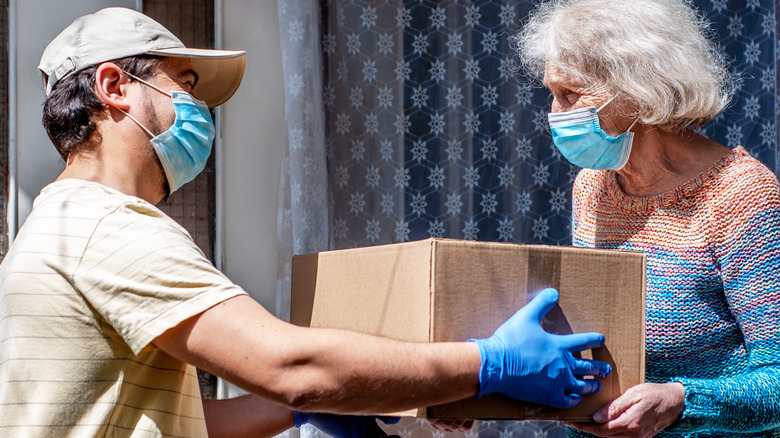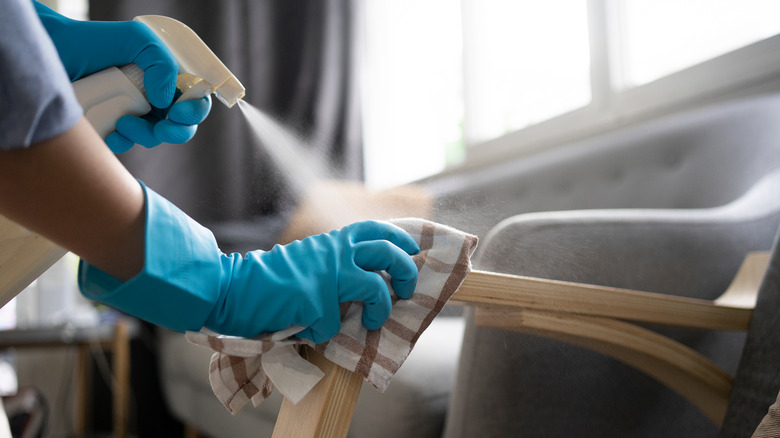How To Safely Help Someone You Know When They Have COVID-19
Vaccines are rolling out around the world but that doesn't mean we're clear of COVID-19 just yet. Infection is still possible, which means you or someone you know still might contract the virus. And if that happens, it's important to know how to care for your loved ones. Or how they can help care for you.
Clinical psychologist Renee Solomon, Ph.D., spoke with Bustle earlier this month about the best way to support a friend with Covid, saying that simply being present, even though it's from a distance, is very helpful. This might not seem that helpful, but it's the best way to support their recovery without risking infection yourself.
As Sherese Ezelle, a licensed mental health counselor, explains later in the article, keeping contact with sick friends reminds them that "you and many others are thinking of them and have not forgotten them". Self-isolation to avoid infection is difficult enough and contracting Covid is even more restrictive. Having a strong support network can help ease the loneliness, even from a distance.
Just be sure, the experts warn, to keep it light. The last thing most sick people want is to ponder heavy topics and people sick with Covid are dealing with additional fear and anxiety. Stick to memes, quizzes, and quirky news stories on topics your friend enjoys.
If you want to help in a more hands-on way, keep check-ins brief and no-contact. Drop off groceries at their front door or offer to walk their dog. And if you're too far away for that, order their groceries to be delivered or send gift cards to cover the cost while they're sick.
Caring for someone at home
Of course these guidelines don't work if you share a house with a sick person. In those cases, the Centers for Disease Control and Prevention (CDC) has a different set of guidelines. Most of the specifics vary depending on how much space you have, but there are some that apply no matter your square footage. The biggest one being that when someone in a household has Covid, the household as a whole needs to self-isolate as much as possible. This might mean switching to delivery for everything from groceries to medication. And it definitely means no visitors.
If you have the space for it, the CDC recommends that sick people use a separate bedroom and bathroom from everyone else. Anyone going into these rooms should use a mask and gloves and the patient should wear a mask when someone else is in the room with them. This extra layer of isolation will help keep everyone else healthy while the patient recovers.
Not everyone has that kind of space, however. And while a healthy partner might take to sleeping on the couch for a little while, there is still plenty of risk for infection. Caretakers can reduce their risk by wearing masks and gloves, and by washing their hands often. It's also important to disinfect commonly touched surfaces and to avoid sharing things like phones, bedding, towels, and dishes.
The world is making progress toward being Covid-free. Until then, stay safe. Practice social distancing, wear your mask, and wash your hands often. And if you or someone contracts the virus, follow CDC guidelines to help slow the spread of infection.


